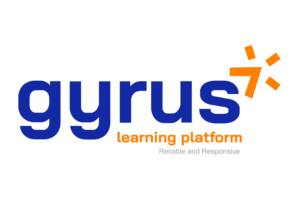Discover How To Select The Perfect LMS
The internet has become an unstoppable force, penetrating every corner of our lives. And with the sky-high adoption of cloud technology, interactive learning methods have taken the education world by storm. It's no wonder that Learning Management Systems (LMS) are having their moment in the spotlight. According to a study by Data Bridge Market Research, the Learning Management System market is poised to experience a remarkable growth rate during the forecast period spanning from 2022 to 2029. It is projected to reach a compounded annual growth rate (CAGR) of 26.3%. If you want to empower your organization with a top-notch Learning Management System, buckle up because we're about to embark on a quest to find the best fit. Today, we will explore the key factors to consider when selecting the best LMS for your organization. Let's make choosing the perfect LMS a piece of cake!
What Is A Learning Management System?
A Learning Management System is a centralized platform for managing and delivering online learning programs. It's the virtual hub where businesses can create, distribute, and track their training materials, empowering employees with knowledge and skills more accessible than ever. These nifty platforms offer a range of solutions for creating, distributing, and managing content across different platforms. They let you automate processes, track progress, and make online learning a breeze.
Whether onboarding new employees, delivering compliance training, or fostering professional development, an LMS streamlines the learning process, ensuring consistency, scalability, and engagement. But an LMS is not just a one-way street. It offers an interactive learning experience, allowing employees to access content anytime, anywhere, and at their own pace. With features like quizzes, assessments, and progress tracking, learners can actively engage with the material and track their growth.
How To Pick The Perfect LMS Depending On The Needs Of Your Business
Let’s delve into the crucial steps of navigating the process and finding an LMS that aligns perfectly with your unique requirements.
1. Understand And Determine Your Business Needs
Assess the specific needs of your business. Consider factors such as:
- The size of your organization.
- The number of users.
- Type of content to be delivered.
- Desired features and functionalities.
Understanding these requirements will help you narrow the options and choose an LMS that aligns with your business management objectives. Additionally, involve key stakeholders and gather their input to ensure the selected LMS meets the organization's and its learners' needs.
2. Incorporate Essential Technical Requirements For A Future-Ready LMS
Ensure you look for the following essential technical requirements in your Learning Management System. It will help you deliver an enhanced learning experience for your organization.
- AI-driven intuitive features
Prioritize an LMS that harnesses the power of AI algorithms to optimize User Experience, customize the content, and offer intelligent recommendations to maximize learning effectiveness. - Cloud-based infrastructure
Opt for a cloud-based LMS to leverage the benefits of flexibility, accessibility, and cost-effectiveness. - Scalability
Ensure the LMS can handle increasing user loads and content volumes without compromising performance. - Integration capabilities
Look for an LMS that seamlessly integrates with existing systems, such as HR software, CRM platforms, or content repositories. - Security measures
Prioritize data security by selecting an LMS with robust encryption, user authentication, and regular security updates. - Multimedia support
Ensure the LMS supports various multimedia formats, such as videos, interactive assessments, and Virtual Reality, to enhance the learning experience. - Analytics and reporting
Seek an LMS that provides comprehensive analytics and reporting features to track learner progress, identify gaps, and measure the effectiveness of training programs.
3. Explore The Personalization Capabilities Of The LMS
Look for an LMS that offers advanced personalization features to tailor the learning experience for each individual. With personalization, you can customize the content, learning paths, and recommendations based on learners' preferences, interests, and skill levels. This ensures learners receive relevant and engaging content that meets their unique needs, improving engagement and learning outcomes.
4. Assess The LMS Vendors' Backgrounds And Experience
Look for established vendors with a track record in the eLearning industry, ensuring reliability and expertise. Review factors like:
- Years in operation
- Client Portfolio
- Success stories to gauge their reputation
A vendor with a strong background and experience will likely offer a reliable platform, dependable support, and continuous innovation.
5. Adaptability And Maintenance
An adaptable and well-maintained LMS ensures a smooth learning experience for your users and minimizes disruptions caused by system limitations. Therefore, select a Learning Management System that can quickly adapt to your organization's changing needs and technological advancements. Evaluate the LMS's flexibility in accommodating different learning formats, content types, and user roles. Additionally, assess the ease of maintenance and updates, ensuring that the vendor provides regular software updates, bug fixes, and technical support.
6. Request A Trial Period Or A Live Demonstration
Before committing to an LMS, consider requesting a trial period or live demonstration. This lets you explore the platform's features, User Interface, and functionality firsthand. Testing the LMS helps you assess its compatibility with your organization's needs and ensures it meets your expectations.
7. Evaluate The LMS's Data-Tracking Capabilities
Ensure the LMS has robust data-tracking capabilities. Look for features that allow you to monitor learner progress, track completion rates, and gather insights into learner performance. Effective data tracking enables you to measure your training programs' effectiveness, identify improvement areas, and make data-driven decisions.
8. Consider Time And Effort For Implementation
Consider the time and effort required for the LMS implementation. Assess system setup, content migration, user onboarding, and integration with existing systems. Choose a Learning Management System that offers a streamlined implementation process and provides support throughout the setup phase to ensure a smooth transition for your organization.
Wrapping Up
Congratulations! You're now armed with insights on factors to pick the perfect LMS for your business needs. Remember, investing time and effort in selecting a suitable LMS will pay off in the long run, enabling you to deliver impactful learning experiences.
Editor's Note: Check our LMS directory to weigh the options and find the right fit for your organization.









